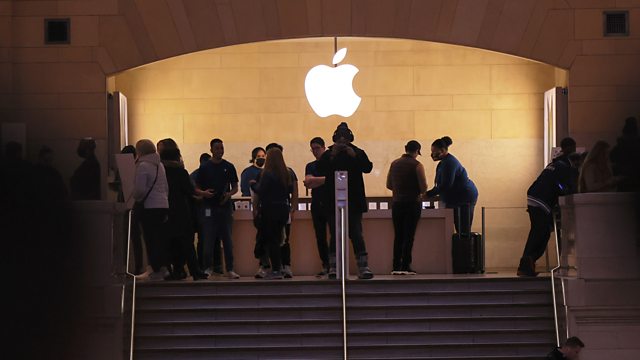Why are companies so slow to unionise in the US?
An analyst says that although surveys show the public feel favourably about the benefits of unions - he cites 55 per cent of people respond in this way - they are slow to join up.
Retail workers at the Towson Apple Store in Maryland in the US recently celebrated a successful vote to form the tech giant's first retail union in the country. Over the last few decades in the United States, there has been a big drop in trade union membership but in the last couple of years, that trend has slowly begun to reverse, with workers in several large conglomerates, including Starbucks, Microsoft and Amazon, winning recognition agreements.
Peter Prowse, Professor of Human Resource Management and Employment Relations at Sheffield Hallam University, says the slow rate of unionisation is due to a decline of the traditional unionised sectors of manufacturing and services and, instead, an increase of companies such as Apple and Microsoft moving into these sectors who have not traditionally been unionised. Now, however, there is a sign of a new found willingness to organise unions. But he goes on to say that although surveys show the public feel favourably about the benefits of unions - he cites 55 per cent of people respond in this way - they are slow to join up, with only 10 per cent of people actually belonging to a union.
Photo: Employees at the Apple Store at the Grand Central Terminal store begin the process of unionization, April 2022 Credit: Getty Images
Duration:
This clip is from
More clips from Newshour
-
![]()
Damascus resident: 'Assad took everything from us'
Duration: 04:02






